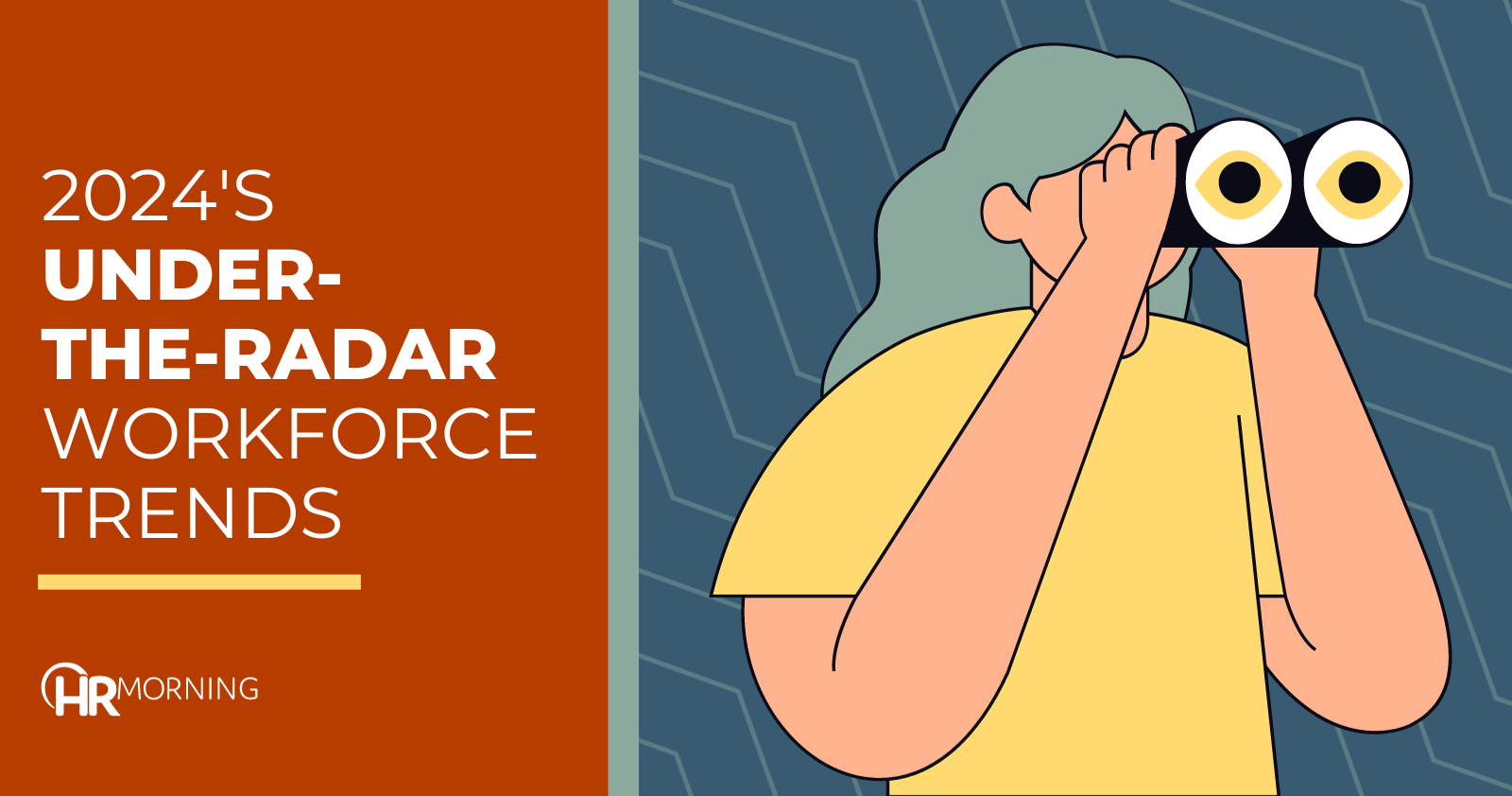HR pros don’t want to get blindsided. So you probably scour (or just scan) annual workforce trends when they pop up at the new year’s beginning.
While some trends creep up over time, a few can bite you in the butt. Case in point: Quiet Quitting. Employees quietly stopped doing their work, so you didn’t see it coming. But the drop in productivity and hit to morale likely had a negative effect in the workplace.
Don’t bet on workforce trends!
There’s some theory and science to most workplace trend predictions. While we don’t recommend you lay down bets and watch the odds on these trends, we do think there’s a good chance they’ll have some impact on your HR operations this year.
Here are six trends you might not have seen coming — but you’ll want to keep an eye out for so you’re ready to handle them.
From DEI to EID
We’ll likely see a movement from Diversity, Equity and Inclusion (DEI) to Equity, Inclusion and Diversity (EID).
“We intentionally talk about equity, inclusion, and diversity, in that order,” says from Amy Rossi, Chief People Officer of Expel. “With a tighter job market, employees will look to grow their careers within their organizations. This means employers should take a closer look at their career development and internal mobility practices to ensure they’re effective, equitable and applied consistently. If employers don’t choose to invest in this on their own, employees will push for improvements and transparency.”
From mindset to skillset
Businesses will move toward hiring for mindset over skillset. That means many will drop archaic qualifications for degrees, certifications and years of experience and hire more for attitude and ability to learn.
“Since the roles that people are applying for now may very well not exist in two to four years’ time, in 2024 businesses will be looking to hire people who can demonstrate that they’re able to adapt to change,” says Karoli Hindriks, Co-founder and CEO of Jobbatical. “Investing in personal development and coaching to strengthen these interpersonal skills may pay off in the long run.”
From being to well-being
We’ve talked for years about employee well-being. And companies have touted their initiatives geared toward well-being. But it seems 2024 is the year employers will meet employees where they are — whether that’s in an office or across an ocean — to provide the well-being benefits that meet their needs.
“Gone are the days of in-office perks that drive workplace satisfaction,” says Rossi. “Employees want benefits that help with overall well-being — access to great mental health providers, coaching, and support in times of crisis. This means taking the time to ensure your time-off practices and policies include days for mental well-being and giving back to communities.”
From silence to conversation
Politics will impact business and employee conversations this year. It’s already heating up, and it’ll be nearly impossible to try to stop the chatter about it. So brace yourself!
“Employees increasingly want their employers to take a stand when it comes to politics, values and ethics,” says Hindriks. “This will come to be even more in 2024 as continued global unrest is met by big potential political changes, such as the U.S. election.”
From WFH to WIO
The hybrid/work-from-anywhere/remote work situations (and differing views) aren’t new. And a Perceptyx study found the number of people working with flexibility has leveled out.
But work in the office (WIO) will likely increase this year — and it’s fueled by one group in particular: new employees. Nearly 70% of those with less than a year tenure are working on-site, up from 62% a year ago. Plus, job descriptions that include remote and hybrid work fell 18% in the past year, according to Indeed’s findings.
“The return-to-office (RTO) trend is largely being driven by new hires. If businesses are committed to full-scale RTO, they may be pursuing it through attrition, rather than forcing the issue with existing staff,” says Perceptyx Senior Director, People Analytics, Research, & Insights, Emily Killham.
From AI talk to AI adoption
We’d be amiss if we didn’t say AI would be among the biggest workplace trends in 2024. The difference this year: More companies will embrace it — not just wonder and fret about it.
“We’re not yet at the stage where AI is going to replace whole professions, but in 2024 we’ll see its application in the workplace skyrocket,” Hindriks says. “This will predominantly be through improving processes, efficiencies and general productivity. Workers would be wise to upskill now so that their future careers aren’t disadvantaged by an AI knowledge gap.”



